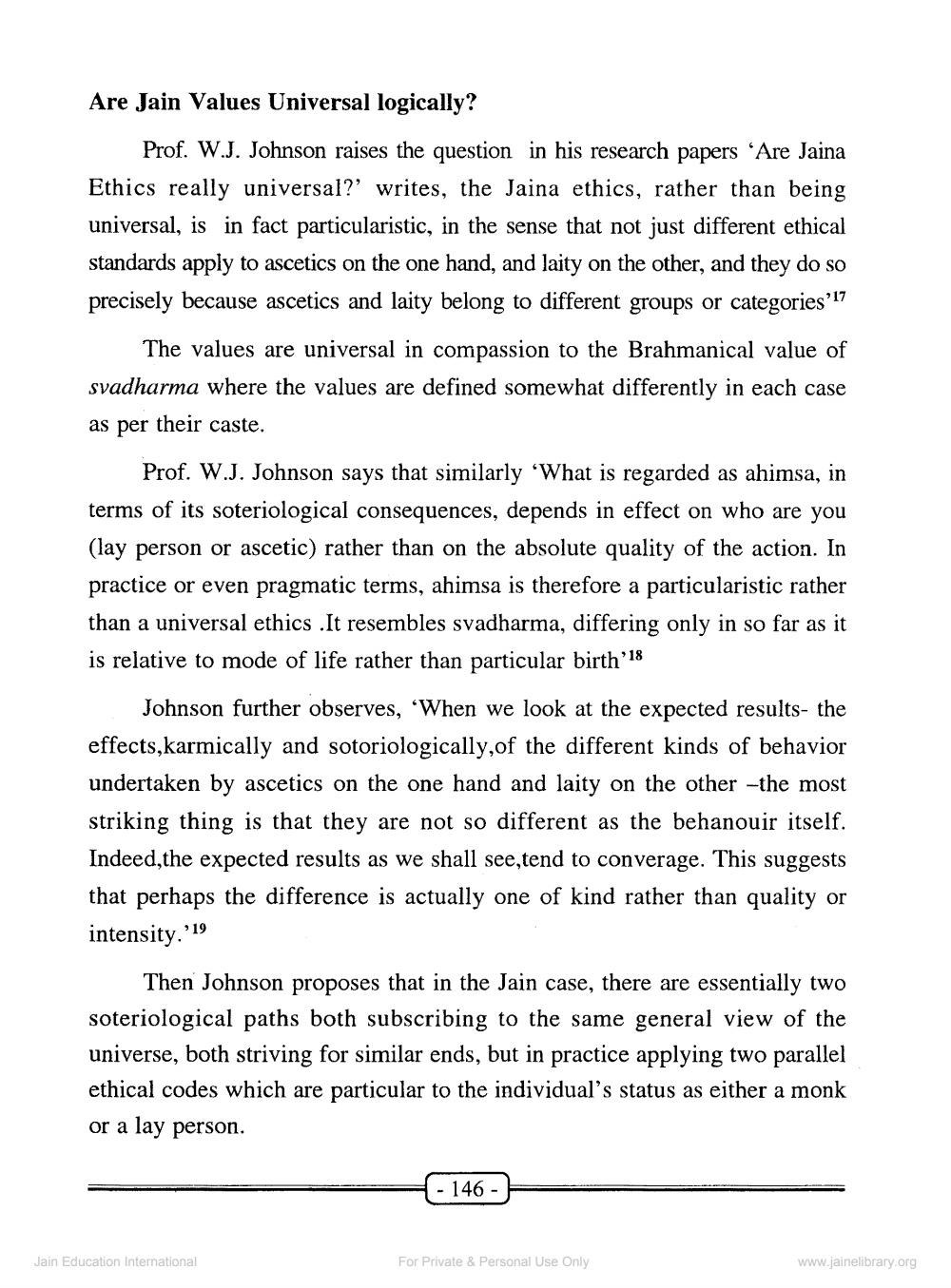________________
Are Jain Values Universal logically?
Prof. W.J. Johnson raises the question in his research papers 'Are Jaina Ethics really universal?' writes, the Jaina ethics, rather than being universal, is in fact particularistic, in the sense that not just different ethical standards apply to ascetics on the one hand, and laity on the other, and they do so precisely because ascetics and laity belong to different groups or categories'17
The values are universal in compassion to the Brahmanical value of svadharma where the values are defined somewhat differently in each case as per their caste.
Prof. W.J. Johnson says that similarly 'What is regarded as ahimsa, in terms of its soteriological consequences, depends in effect on who are you (lay person or ascetic) rather than on the absolute quality of the action. In practice or even pragmatic terms, ahimsa is therefore a particularistic rather than a universal ethics .It resembles svadharma, differing only in so far as it is relative to mode of life rather than particular birth'18
Johnson further observes, 'When we look at the expected results- the effects,karmically and sotoriologically, of the different kinds of behavior undertaken by ascetics on the one hand and laity on the other --the most striking thing is that they are not so different as the behanouir itself. Indeed, the expected results as we shall see,tend to converage. This suggests that perhaps the difference is actually one of kind rather than quality or intensity."
Then Johnson proposes that in the Jain case, there are essentially two soteriological paths both subscribing to the same general view of the universe, both striving for similar ends, but in practice applying two parallel ethical codes which are particular to the individual's status as either a monk or a lay person.
Jain Education International
- 146
For Private & Personal Use Only
www.jainelibrary.org




